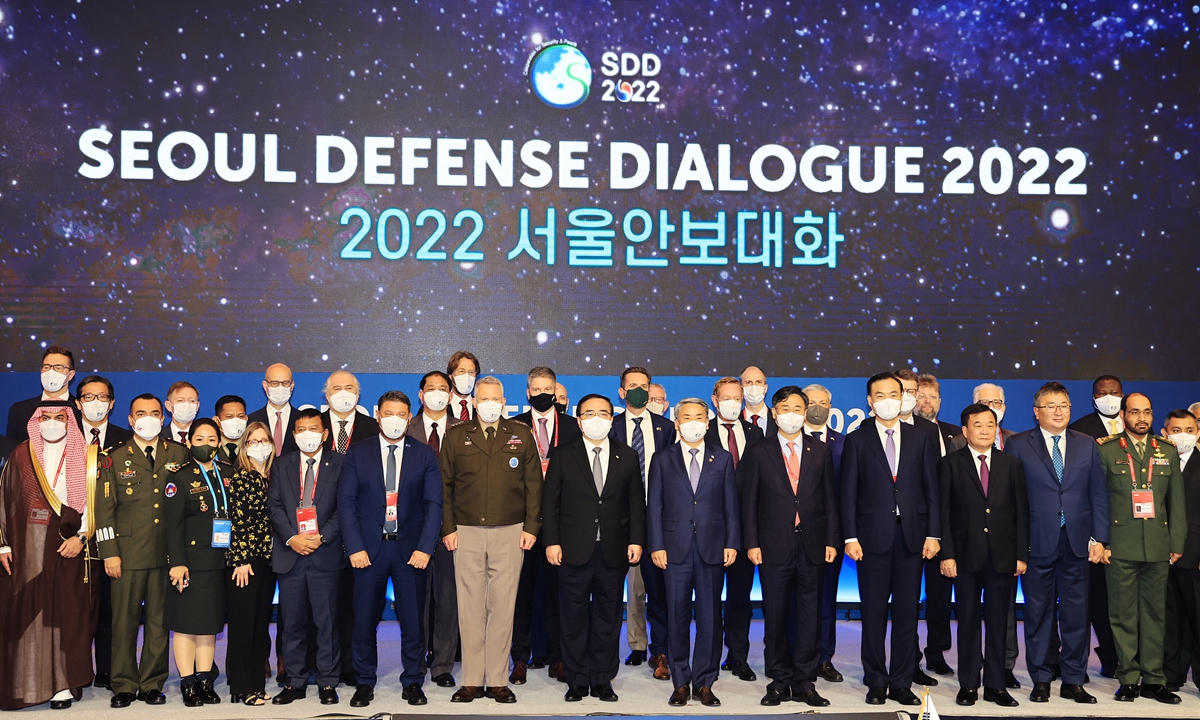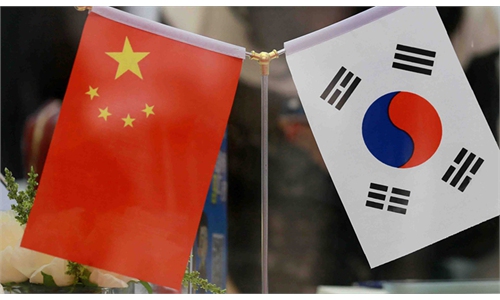US’ intention to bring NATO to Asia-Pacific through 2022 SDD ‘unlikely to bear fruit’

Participants at the 2022 Seoul Defense Dialogue. Photo: VCG
With the participation of 54 countries and organizations, including the US and NATO, the 2022 Seoul Defense Dialogue (SDD) kicked off at a Seoul hotel on Wednesday, the first return as an offline event after three years.
However, observers said the dialogue is unlikely to yield any substantive consensus or results, as the US does not care about the security concerns of regional countries, but only intends to bring the NATO system to Asia to counter China, while regional countries will not provide the support it expects.
During the opening ceremony of the 2022 SDD on Wednesday, South Korean Defense Minister Lee Jong-sup talked about the country's "audacious plan" to help solve the Korean Peninsula's nuclear crisis, according to Yonhap News Agency.
On the margins of the SDD, South Korea's Vice Defense Minister Shin Beom-chul held a meeting with the representatives of the AP4, a group of four key Asia-Pacific partner countries of NATO - South Korea, Australia, New Zealand and Japan.
The AP4 meeting is a follow-up to the quadripartite summit of Asia-Pacific partner countries attended by the leaders of South Korea and Japan during the NATO summit in June, and participants shared the need for stronger solidarity to maintain the "rules-based" international order, according to Yonhap.
"The US and NATO participation in the 2020 SDD and the AP4 meeting is clearly an attempt to continue the expansion of the NATO model into Asia following the NATO summit in June," Lü Chao, an expert on the Korean Peninsula issue at the Liaoning Academy of Social Sciences told the Global Times on Wednesday.
If China is not fabricated as a systemic threat, NATO loses the need to continue to survive, so it has to move to the Eastern Hemisphere, Yang Xiyu, senior research fellow at the China Institute of International Studies, told the Global Times on Wednesday.
However, ASEAN countries are even less likely to support an Asian version of NATO, given the long-term cooperation and peace in this region, analysts said.
Each country has its own security concerns, national interests and long-term intentions, which the US does not care about, suggesting that this dialogue is unlikely to be fruitful, Yang said.
While verbally the parties may reach some consensus after the meeting, US expectations are almost impossible to achieve, Lü said, noting that the US is losing its former authority in international high-handedness and hegemony.
Western-led multilateral security dialogues are increasingly tinged with Western subjective bias and have been reduced to a pre-determined stage of camp confrontation, Yang said. "They are no longer about improving mutual understanding and communication, but about setting up targets in advance and making presumptions of guilt."
"China should maintain its strategic resolution. No matter how the West goes about attacking, with or without NATO intervention, China will proceed firmly along the path of peaceful development," he said.

